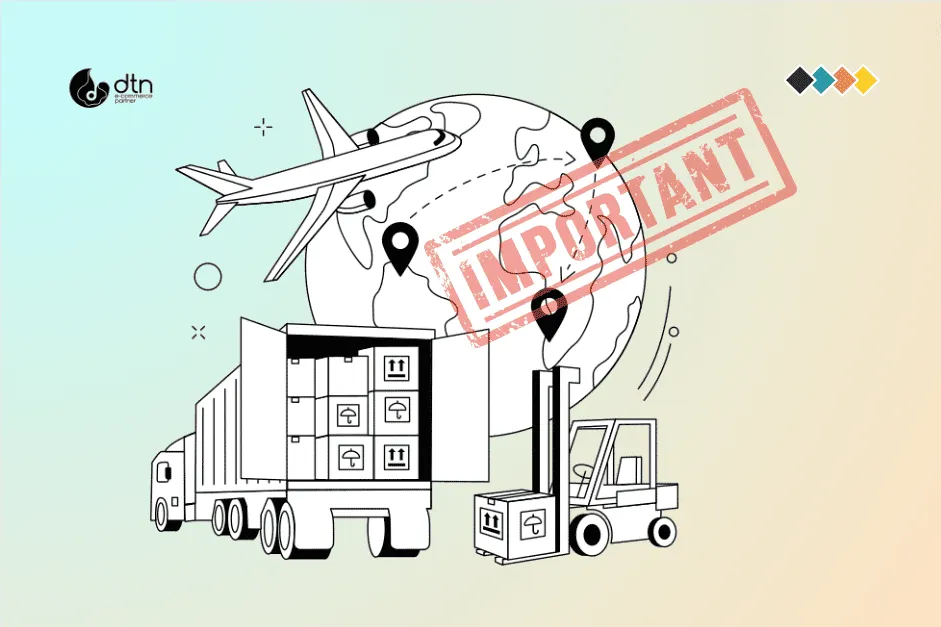E-commerce fulfillment centers have emerged as the backbone of the digital shopping experience, playing a crucial role in bridging the gap between customer orders and timely, accurate product delivery.
Table of Contents
Defining E-Commerce Fulfillment Centers
E-commerce fulfillment centers are specialized warehouses or distribution facilities that handle the storage, processing, packaging, and shipping of products sold through online channels. These centralized hubs serve as the nerve centers of e-commerce operations, managing the complex logistics involved in getting customers’ orders from the warehouse to their doorsteps.
Unlike traditional retail stores, e-commerce businesses do not have the luxury of face-to-face interactions with customers. Fulfillment centers, therefore, become the physical manifestation of the online shopping experience, responsible for ensuring that products are handled with care, packed securely, and delivered promptly.

The Importance of Efficient Fulfillment
In the highly competitive e-commerce landscape, efficient fulfillment is a key differentiator that can make or break a business. Customers have come to expect fast, reliable, and seamless delivery as the norm, and any delays or errors in the fulfillment process can quickly erode customer trust and loyalty.
Efficient fulfillment centers play a vital role in several ways:
- Faster Delivery Times: By strategically locating fulfillment centers near major population centers, e-commerce businesses can significantly reduce the time it takes to get products into customers’ hands. This is particularly crucial for businesses that offer expedited shipping options, such as next-day or same-day delivery.
- Inventory Management: Fulfillment centers act as the central nervous system for inventory, enabling e-commerce businesses to maintain optimal stock levels, reduce the risk of stockouts, and quickly respond to fluctuations in customer demand.
- Improved Customer Satisfaction: Seamless fulfillment experiences, including accurate order processing, well-packaged products, and timely delivery, contribute to higher customer satisfaction levels, increased loyalty, and positive word-of-mouth referrals.
- Cost Savings: Efficient fulfillment operations can lead to significant cost savings for e-commerce businesses, through reduced shipping expenses, minimized inventory carrying costs, and optimized labor utilization.

The Role of Technology in E-Commerce Fulfillment
The modern e-commerce fulfillment landscape is heavily influenced by technological innovations that have transformed the way retailers manage their logistics operations. From automated storage and retrieval systems to data-driven inventory optimization, technology is playing a crucial role in enhancing the efficiency and responsiveness of fulfillment centers.
- Warehouse Management Systems (WMS): Sophisticated WMS solutions help e-commerce businesses manage the flow of goods, track inventory levels, and optimize the movement of products within the fulfillment center. These systems often incorporate real-time data analytics to identify bottlenecks, improve pick-and-pack processes, and streamline order fulfillment.
- Robotics and Automation: Fulfillment centers are increasingly adopting robotic systems and automated technologies, such as autonomous mobile robots, automated storage and retrieval systems, and advanced sortation equipment. These innovations help reduce labor costs, improve accuracy, and accelerate the fulfillment process.
- Predictive Analytics: By leveraging data and predictive analytics, e-commerce businesses can forecast demand, optimize inventory levels, and proactively identify potential fulfillment challenges. This data-driven approach enables more agile and responsive fulfillment operations.
- Omnichannel Integration: Successful e-commerce businesses are integrating their fulfillment centers with other sales channels, such as brick-and-mortar stores and marketplaces. This omnichannel approach allows for greater inventory visibility, flexible fulfillment options (e.g., buy online, pick up in-store), and a seamless customer experience.

Challenges and Considerations in E-Commerce Fulfillment
While the benefits of efficient e-commerce fulfillment are clear, the implementation and management of these operations are not without their challenges. E-commerce businesses must navigate a range of considerations to ensure the success of their fulfillment strategies:
- Scalability and Flexibility: As e-commerce businesses grow, their fulfillment centers must be able to scale to meet increasing demand and accommodate changes in product mix and customer expectations.
- Sustainability and Environmental Impact: Consumers are increasingly concerned about the environmental impact of e-commerce, prompting businesses to explore sustainable packaging solutions, green transportation options, and energy-efficient warehouse practices.
- Talent and Workforce Management: Fulfillment centers require a skilled workforce, from warehouse managers to pick-and-pack operators. Attracting, training, and retaining talent is crucial for maintaining efficient and reliable fulfillment operations.
- Regulatory Compliance: E-commerce businesses must navigate a complex web of regulations, from product safety standards to labor laws and shipping regulations, to ensure the legality and compliance of their fulfillment activities.
- Cybersecurity and Data Privacy: With the increasing digitalization of fulfillment operations, e-commerce businesses must prioritize robust cybersecurity measures and data privacy protocols to protect sensitive customer and operational information.

The Future of E-Commerce Fulfillment
As the e-commerce landscape continues to evolve, the role of fulfillment centers will become increasingly crucial. Industry experts foresee several trends that will shape the future of e-commerce fulfillment:
- Hyper-Localization and Micro-Fulfillment: The rise of same-day and on-demand delivery will drive the need for smaller, more localized fulfillment centers that can quickly respond to customer demands.
- Autonomous and Robotic Fulfillment: Advancements in robotics, artificial intelligence, and autonomous systems will further automate and streamline fulfillment processes, reducing labor costs and improving efficiency.
- Sustainability and Eco-Friendly Solutions: E-commerce businesses will prioritize sustainable packaging, green transportation, and energy-efficient warehouse operations to meet growing consumer demands for environmentally responsible practices.
- Seamless Omnichannel Integration: The successful integration of e-commerce fulfillment with other sales channels, such as brick-and-mortar stores and marketplaces, will be crucial for delivering a cohesive and convenient shopping experience for customers.

Conclusion
By leveraging technology, optimizing logistics, and continuously adapting to evolving customer expectations, e-commerce businesses can build resilient and responsive fulfillment operations that drive business growth and cement their position in the highly competitive e-commerce landscape.
Frequently Asked Questions
We’ve compiled a list of answers to common questions.
What are e-commerce fulfillment centers?
E-commerce fulfillment centers are specialized warehouses that handle the storage, processing, packaging, and shipping of products sold online. They manage the logistics of getting customer orders from the warehouse to their doorsteps.
Why are fulfillment centers important for e-commerce?
Fulfillment centers are crucial for ensuring timely and accurate delivery of products, which is essential for maintaining customer trust and satisfaction. They help streamline the logistics process, making online shopping efficient and reliable.
How does technology improve e-commerce fulfillment?
Technology enhances e-commerce fulfillment through innovations like Warehouse Management Systems (WMS), robotics and automation, and predictive analytics. These tools improve inventory management, order accuracy, and overall efficiency in fulfillment operations.
What challenges do e-commerce businesses face in fulfillment operations?
Challenges include scalability and flexibility, sustainability, talent and workforce management, regulatory compliance, and cybersecurity and data privacy. Addressing these challenges is essential for maintaining efficient and reliable fulfillment operations.



